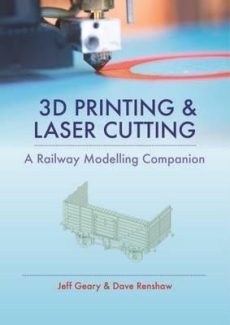Home > All Titles > Adult Non-Fiction > Transport > Railway Modelling > 3D Printing & Laser Cutting

The technology for 3D printing has been around for many years but now has a rapidly expanding market among hobbyists and home users. 3D printing machines are now affordable for individuals or modelling societies and offer the opportunity to design and build bespoke parts of a model, or even create an entire carriage, wagon body or station building, through an automated process rather than construct them through traditional methods and materials or buy them off the shelf from a manufacturer. The authors take readers through the principles of 3D printing; the benefits to the railway modeller; the do’s and don’ts of building structures in the materials available; an overview of the various CAD packages on offer and a simple entry-level tutorial; how to check your 3D printable file to ensure it contains no manifold errors and how to fix these prior to printing; troubleshooting; finishing your 3D printed component. A separate chapter introduces laser cutting for the modeller and includes a section on brass etching. The book contains how-to summaries for each section and is well illustrated with step by step techniques where appropriate, the various stages of 3D printing, the types of CAD packages and printers available to the modeller, and examples of models and components produced by 3D printing.